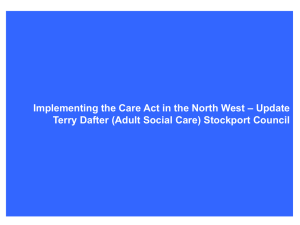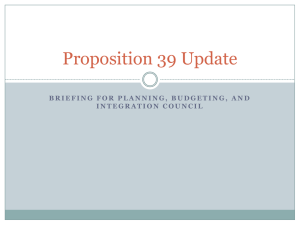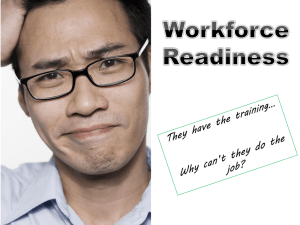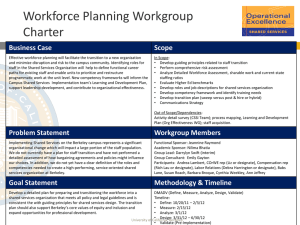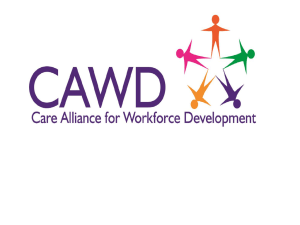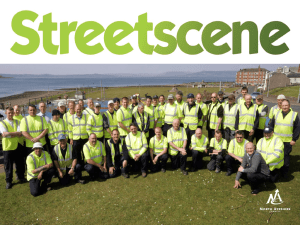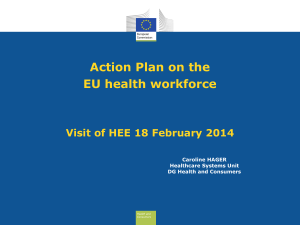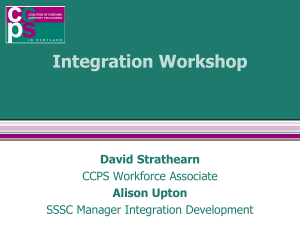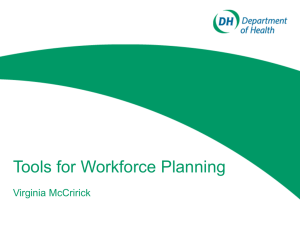IIWAMP MHThematic Group intro - kim sales -
advertisement
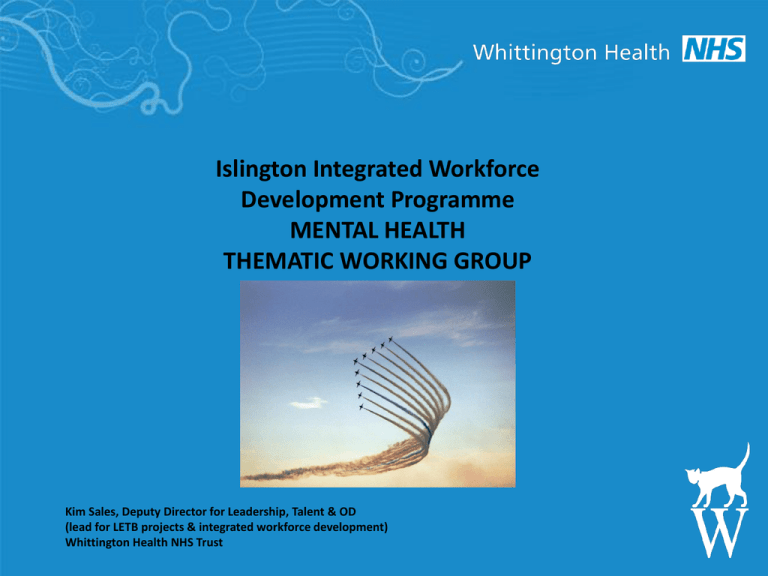
Islington Integrated Workforce Development Programme MENTAL HEALTH THEMATIC WORKING GROUP Kim Sales, Deputy Director for Leadership, Talent & OD (lead for LETB projects & integrated workforce development) Whittington Health NHS Trust The community & home is becoming the locus of care Workforce to support integrated care Good evidence • The creation of new roles working across professional boundaries supports integrated delivery. Some evidence • No one “right” staffing model. Team working more important than individual roles. • A focus on the service user/patient helps overcome professional boundaries. • Understanding of different roles and responsibilities is important to successful integration within a team. Messages from ‘Time to Think Differently’ • The staff we will have are the staff we already have – don’t rely on the pipeline • Align the workforce to the work – not the other way round • Develop teams not just individual professional groups • Support and “activate” patients • Support the informal workforce • Reverse the inverse training and investment law • Challenged current terms and conditions • National facilitation but local action This is the start…the journey has many steps..with your crucial involvement The How.. DATE GATHERING PRESENT THE DATA WORKFORCE DEVELOPMENT PLANNING TRAINING & DEV. NEEDS ANALYSIS MULTI DISCIPLINARY WORKING NEW ROLE DEVELOPMENT: Care Navigator and Lead Practitioner REPORTS PRODUCED, RECOMMEND, ACTION ENERGY INDEXING Data gathering: #1 Islington Public Health data #2 Demographics #3 Workforce statistics re: roles within h&SC economy #4 Care pathways within themes #1 & #2 opposite Weaving in 6 Step Workforce Planning model – building joint capabilities in workforce planning across locality #1 TOP 2% of population with complex needs (Older people (inc. dementia), Long Term Conditions, adults with mental health) #2 Next 10% of population with complex needs (this will incorporate the groups above, as well as families/children with additional needs) Mid August September 22ND & 23RD October November December January February March onwards Skills for Health gathers data across health & social care locality 2 COLLECTIVE DATA SEMINARS THEMATIC WORKSHOP: THEMATIC WORKSHOP: THEMATIC WORKSHOP: THEMATIC WORKSHOP: LONG TERM CONDITIONS OLDER PEOPLE MENTAL HEALTH CHILDREN & YOUNG PEOPLE Evaluation Report, Recommendations, Next Phase to embed modelling Partnership between service users, health & social care providers, commissioners, training & education providers, local community, workforce EVALUATION RUNNING FROM START – FINISH So.. Your voice & experience really matters The Aims & Objectives of the Day AIMS To utilise the users experience of MH services in Islington through developing integrated working OBJECTIVES • To support members to become the ‘champions’ for integrated working across Islington in MH services • To use evidence & intelligence on Islington’s health community to inform and prepare the workforce to work as an integrated community for MH • To use local and national examples of good practice & case studies on integrated working to inform planning for joint working for the recommendations for the future • To consider the future models for improved integrated care via integrated workforce development for MH What we aim to Co-create.. • A MH MODEL FOR IMPROVED INTEGRATED WORKING : Acute – Self Management • To assess core functions & tasks required to deliver the Model • To identify new ways of working • To identify possible new functions, e.g care navigators, care coordinators, integrated care training, motivational interviewing


